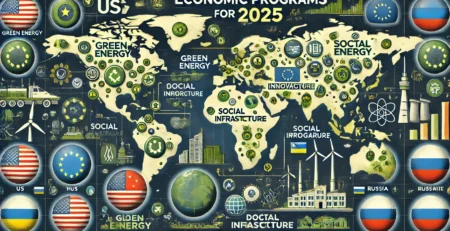Poverty and inequality in Albania and the time for a new Fiscal Justice
🔴 In a country where about half of the population lives at risk of deep poverty, any policy that ignores this reality is not merely unjust it is economically irrational and politically unsustainable.
Albania cannot claim development without equality, cannot seek integration without reform, and cannot build trust without a fiscal system that distributes fairly.
🔻 Albania remains a significant example of a fiscal system that, instead of reducing inequalities, often reinforces them. According to the report “Tax Burden in Albania and the Western Balkans 2024”, our country has one of the most regressive tax structures[1] in the region, with only a modest impact on reducing inequality and poverty.
📈 The economy grows, but inequality deepens
Latest data from Eurostat raise alarm bells: Albania ranks first in Europe for the percentage of the population at risk of poverty and deep social exclusion. In 2023, about 42% of the Albanian population — over 1 million citizens — live in severe poverty, unable to meet at least 7 out of 13 indicators of economic and social deprivation, such as rent or loan payments, annual vacations, basic nutrition, heating, or replacing worn-out furniture.
Compared to regional countries, the situation is significantly worse: Montenegro (34.1%), North Macedonia (32.6%), Serbia (30%) — figures that show Albania is not merely an outlier, but a critical case requiring a radical reformulation of economic and fiscal policies.
📊 Figures that speak for themselves
While the EU achieves a 36% reduction in the Gini coefficient through taxation and social transfers, Albania achieves only a 20% impact — less than Kosovo (13%), and far behind countries like Slovenia or the Czech Republic, which have combined progressive policies with targeted support.
There exists a structural inequality that is hindering the country’s development, not only socially but also economically. An economy where such a large portion of the population is excluded from basic opportunities cannot grow sustainably. GDP growth becomes meaningless if it is not accompanied by increased inclusion and economic justice.
While the European Union achieves a 36% reduction in the Gini coefficient through fiscal policies and social transfers, Albania reduces it only by 20%, and Kosovo by just 13%. This means that unlike the EU — which manages to significantly mitigate inequalities through its tax and social benefit systems — Albania fails to do the same, mainly due to flat taxes, selective exemptions, and shallow social support.
🚫 Informal employment is another deep wound.
With nearly 30% of the workforce outside formal schemes, many citizens remain unprotected and outside the social safety net. This translates to lack of insurance, limited rights, and long-term poverty — especially for youth and women.
📉 The consequences?
A system with a weak redistributive effect and a regressive burden.
To genuinely influence poverty and inequality reduction, Albania must shift to a progressive, inclusive system focused on social justice.
⚠️ Today’s reality consists of evasion, tax exemptions, and informality
The scale of tax evasion is alarming. With about 33–38% of taxable potential lost, Albania ranks among the countries with the highest levels of evasion in the Balkans, on par with Kosovo but with lower capacities to address the issue. Sectors such as construction, trade, and services, where the informal economy often thrives, do not contribute proportionally to their real profits.
Meanwhile, tax exemptions, which in theory aim to encourage development, have in practice turned into favoritism channels for selected sectors such as energy, tourism, and technology. Instead of helping equality, they deepen it, since the main beneficiaries are large and formalized businesses.
📌 The data is clear!
⏰ Time for a new fiscal justice
The report emphasizes that it’s not enough to increase public revenues — they must also be fair and progressive.
The time for a new fiscal justice is more than an ethical call – it is a strategic necessity, for three major reasons:
- Long-term economic sustainability requires a system that does not base growth on social exclusion or informality, but on human capital and active inclusion;
- The credibility of public institutions is directly linked to the sharing of burdens and benefits — where justice is lacking, the citizens’ distrust becomes inevitable;
- The process of European Union integration, declared a national priority by the current government after the Socialist Party’s latest electoral victory, is no longer merely a political matter, but a demanding economic and institutional exam.
🎯 With the political goal of EU membership by 2027, Albania must accelerate the implementation of essential reforms in several directions:
• Public finance reform, to increase efficiency and transparency in revenue collection, and to ensure fair and honest use of public funds;
• Improvement of the social protection system, with more targeted, inclusive, and better-coordinated schemes with the labor market;
• Creation of a progressive tax system, aligned with EU standards and promoting equality through proportional contributions on income and wealth;
• Development of the formal labor market, through discouraging informality and strengthening mechanisms for social insurance, vocational education, and support for productive entrepreneurship;
• Empowerment of independent fiscal and statistical institutions, to ensure objective monitoring of inequality and assess the real impact of public policies.
✅ Fiscal reform as the true test of integration
If Albania is to join the EU as a country that not only follows the formal rules of the acquis communautaire, but also respects the core European values — solidarity, equality, and social justice — then fiscal justice is the first test to pass.
Not just to fulfill negotiation chapters, but to build a functional economy, a more equal society, and a fairer state.
📣 This is the moment to clearly separate the growth model of the past — concentrated, unequal, and shaped by narrow interests — from the development model of the future, based on inclusion, justice, and transparency.
Because fiscal justice is not a negotiation chapter — it is the condition to truly become part of Europe.
🇦🇱 Albania cannot move toward European integration with a system that serves the few and excludes the many.
Fiscal justice is not a luxury — it is a condition for a functional economy and a healthy democracy.
And it starts now.
[1] Albania has one of the most regressive tax structures in the region, because:
• It taxes relatively low incomes more than high incomes;
• It does not sufficiently use redistributive tools such as social transfers;
• It allows for exemptions, evasion, and informality that protect the rich and burden the poor.




Leave a Reply
You must be logged in to post a comment.